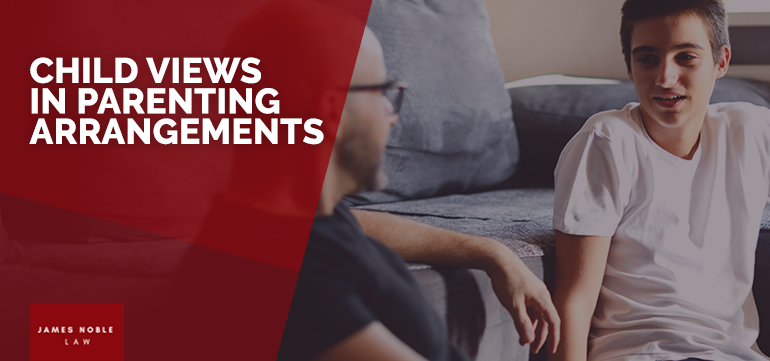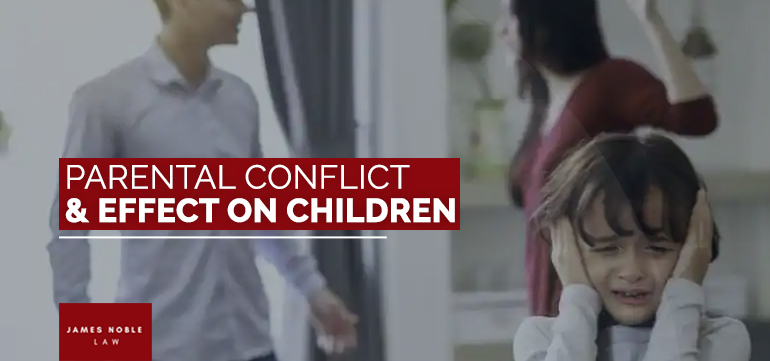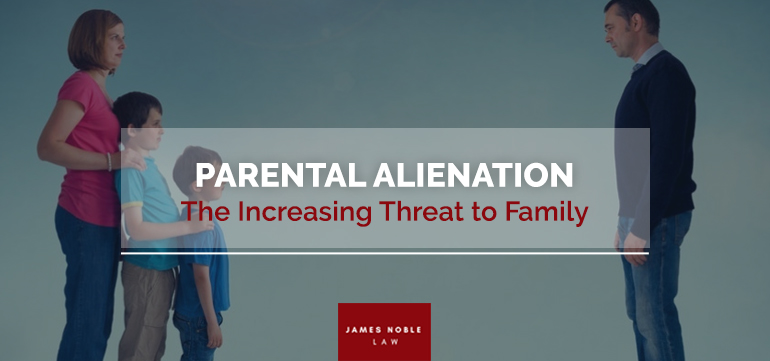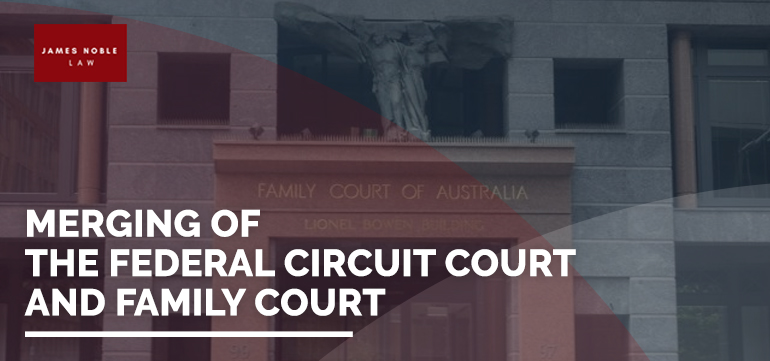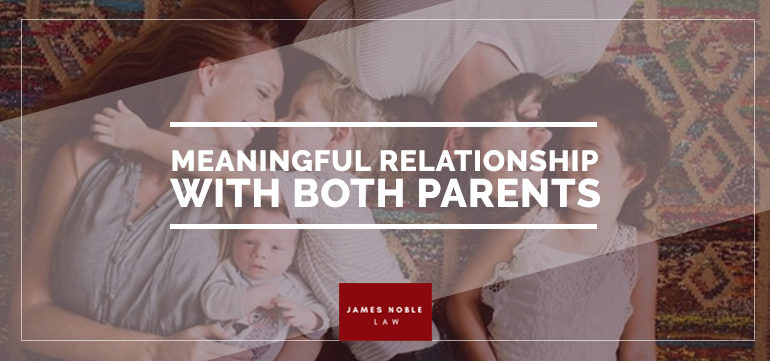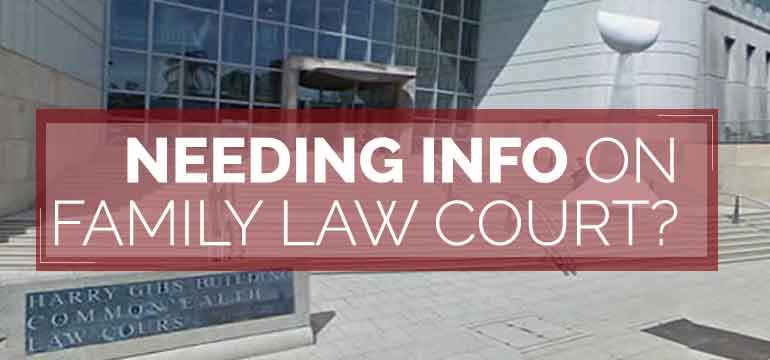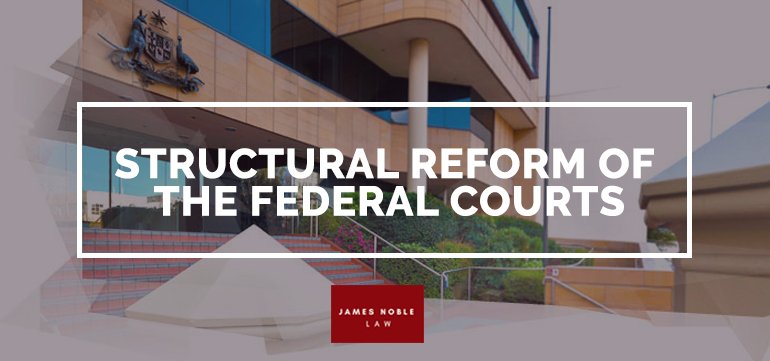Psychologist Involvement in Family Law Proceedings
Family Law Proceedings in Australia When a marriage or relationship breaks down, a typical disagreement between the parties relates to the arrangements of the children, including where they live, attend school and spend time with. These issues may be further complicated if one parent wishes to relocate as a result of family violence, abuse, or other major issues. If disputes of this nature are unable to be resolved through preliminary mediation or dispute resolution, parents may need to apply for...
Read More
Criminal Law in Family Law Proceedings
The Impact of Criminal Law in Family Law Jurisdiction Criminal Law in family law: Pursuant to section 61DA of the Family Law Act 1975 (Cth), the presumption of equal shared parental responsibility exists within family law proceedings. However, this presumption does not apply in circumstances where parents have engaged in family violence due to the effect of section 61DA(2)(B). Effect of Family Violence Orders on Parenting Orders The Family Court may enforce a Family Violence Order against a parent of...
Read More
Did you ever think about your Child Views on Parenting Arrangements for the 0-4 year age group?
CHILD VIEWS IN PARENTING ARRANGEMENTS FOR THE 0-4 YEAR AGE GROUP How the Child’s View Affects Custody Disputes? Before imposing an order, the Court will always consider what Parenting Arrangements are in the best interests of the child. In determining the best interests of the child, any views expressed by the child will be taken into consideration. During this process, the Court will place appropriate weight to these views depending upon various factors such as the child’s maturity and understanding...
Read More
Solicitors Role in Family Proceedings
What's the Solicitor's role in Family law proceedings? The role of solicitors in Family Law proceedings may not be known to the parties before commencing the legal representation. In the case of Simic& Norton [2017] FamCA 1007, Justice Benjamin was critical of both parties’ solicitors, describing their actions as fuelling a negative culture of “bitter adversarial and highly aggressive litigation”. His Honour referenced correspondence that had been sent between the solicitors which did not reflect the appropriate professionalism expected of...
Read More
Child Vaccinations Australia and Family Law
Family Court and Child Vaccinations Australia Whilst many couples have long, happy relationships, there are bound to be one or more serious points of disagreement when it comes to raising children. These issues become more relevant in circumstances where the couple has separated and has different views on how best to raise the child. One increasingly common topic is whether to issue children with Child Vaccinations in Australia. The Argument In recent years, social media contentions around child vaccinations in...
Read More
Property and Sentimental Value
Sentimental Value in Property Settlement In determining how the property pool is split, the Court has previously highlighted the difficult and sometimes unique circumstances where one party may have sentimental value in an asset. In one particular case, the Husband of the proceedings was given 14 days to retrieve the ashes of his deceased parents which had been laid in a memorial on the family farm. During the divorce proceedings, the farm had been awarded to the wife. Sentimental Value...
Read More
Party Expenditure and Wastage
Parties Wastage Following Separation Usually during cases of separation or divorce proceedings which reach the Court, one party has made the other party’s life very difficult, often causing heated disputes and emotions. Although a party may have been difficult, lied, cheated or has caused the other significant pain, the other party is not typically entitled to any additional money during property settlement. In determining Family Law property settlements, a party’s immoral actions or conduct such as infidelity, minor violence (not...
Read More
Parental Conflict and Effect on Children
What does Parental Conflict Impact on Children? Parenting disputes involving high levels of conflict and animosity between the parties often lead to children of the relationship developing emotional, social, and behavioural problem in addition to negatively impacting concentration and educational achievement. These conflicts also affect how children view the safety and security of their homes, as they often blame themselves for the Parental Conflict. Parenting arrangements involving high levels of conflict and anger post-separation are twice as likely to foster...
Read More
Parental Alienation – The Increasing Threat to Family
Parental Alienation As modern family structures have become increasingly complex in today’s society, so too has the threat of parental alienation. Parental alienation occurs when one parent influences the child against the other parent. This usually happens when both parties are seeing the children on a regular basis but are separated and no longer living together. Unfortunately, in most cases, this kind of emotional manipulation is unknown to both the child and the parent before it becomes a serious issue....
Read More
Merging of the federal circuit court of Australia and Family Court
Merging of the federal circuit court of Australia On 30 May 2018, the Government proposed to restructure the existing structure of the Federal Circuit Court of Australia. This will have the effect of merging the Federal Circuit and Family Court of Australia (FCFCA) as of 1 January 2019. Resulting from this merge, a new Family Law Appeal Division will be created to specifically hear appeals from family matters of the new court structure. The new structure intends to create a...
Read More
Engagement Ring Property Rights
Who Keeps the Engagement Ring Law after Separation? [caption id="attachment_11754" align="alignright" width="350"] Engagement Ring Law[/caption] Who keeps the engagement ring after divorce/separation according to engagement ring law? One of the big questions couples have after a relationship breaks down is what happens to the engagement ring. The issue of which party has a claim to this item can be contentious, with many different opinions based on tradition, morals, and conventions. Where parties are disputing the ownership of the ring, this...
Read More
Who Gets Animals in Divorce Proceedings?
Divorce and pets: Who Gets Animals in Divorce Proceedings? As animals have become an integral part of modern relationships, it is important to understand what happens to your pets during the separation and divorce proceedings. Given that one or both parties may have special connections to their pets, the decision of who gets the primary care of the animal can sometimes be tense and lead to hostile situations. Some of the situations regarding Animals During Divorce Proceedings that commonly arise...
Read More
Mental Health Conditions and Parenting Arrangements in Family Law Proceedings?
How Do Mental Health Conditions Affect Family Law Proceedings? If you have been diagnosed with a mental health condition, this can impact both child welfare/parenting arrangements addition to property disputes. However, a mental health condition does affect or have relevance to divorce proceedings (family law proceedings) (provided there are no children in the relationship). Mental Health in Parenting Disputes The first and foremost principle applied by the Court in any parenting proceeding is placing the welfare of the child as...
Read More
Retaining A Meaningful Relationship with Both Parents
Healthy and meaningful relationship Last year a Court dispute between Brad Pitt and Angelina Jolie resulted in the Superior Court of Los Angeles County imposing an order for the five children to spend more time with their father. When providing reasons for the judgment, the Court provided “it is critical that each child have a healthy and meaningful relationship with both parents”. The new order changes the original full-time custody arrangements in favor of Jolie to allow Pitt anywhere between...
Read More
Sperm donation Brisbane Law, Parental Responsibilities and Legislation
Law of "Sperm donation Brisbane", Parental Responsibilities and Legislation Although Sperm donation Brisbane has historically been subject to anonymity in Australia, recent legislative reform and case law suggest a definitive movement towards inclusion within Family Law and Parental Responsibility. In all states and territories of Australia, donating sperm anonymously is now banned through legislation or mandatory guidelines. Whilst cases involving sperm donors are quite infrequent, the importance to both the Child Support Assessment Act and the Family Law Act is...
Read More
Family Report and Expert Evidence in Proceedings
Family Report and Expert Evidence in Proceedings Expert evidence including a family report provides the Court with material from an independent viewpoint, which both assesses and highlights particular issues with each unique case. The most common form of expert evidence in family law proceedings is family reports, which are undertaken by psychologists to determine the children’s views, the party’s capacity regarding parental issues, and any emotional or psychological effects of previous family violence or abuse. The Family Report The family...
Read More
Do you need information about the Family Law Courts Brisbane?
Important information and contact details about the Family Law Courts Brisbane The Family Law Courts Brisbane’ National Enquiry Centre (NEC) is the entry point for all telephone and email inquiries about Family Law Court matters in the Family Court of Australia and the Federal Circuit Court of Australia. [caption id="attachment_9140" align="aligncenter" width="529"] Harry Gibbs Commonwealth Law Courts Building[/caption] The NEC can assist with: Information about how to apply to the court Making urgent applications to the family law court Procedural...
Read More
Structural Reform of the Federal Court
What Does Structural Reform of the Federal Court Mean To You? On 30 May 2018, the Government proposed to establish the new Federal Circuit and Family Court of Australia (FCFCA), amalgamating the two courts together under a new regime. In addition to this proposed structure, a new Family Law Appeal Division will be created to hear appeals from the FCFCA regarding family law matters. The implementation of the new structure commenced operation on 1 January 2019. There will now be...
Read More
Adopting a child in Queensland? What are the key terms of adopting a stepchild in qld?
Are you Adopting a child in Queensland? The term ‘Adopting a child in Queensland’ refers to the process of transferal of legal rights and responsibilities of parenthood from one set of parents to another. This includes both the process of adopting a child into a family and, those parents who wish to place their existing child into adoption for various reasons. In Queensland, adoptions must be organized through Adoption Services Queensland, as it is currently unlawful for persons to privately...
Read More
Urgent Family Law Applications
Bringing Family Law Matters Urgently As most couples who suffer a breakdown of the relationship or marriage want to sort out the matter as soon as possible, it is common for parties to try and bring proceedings as soon as possible, especially in situations involving children. However, before parties engage with the Court process, it is necessary for parties to attend mediation. Requirement of Mediation Before the Family Court will hear a matter, the parties must attend mediation and obtain...
Read More




